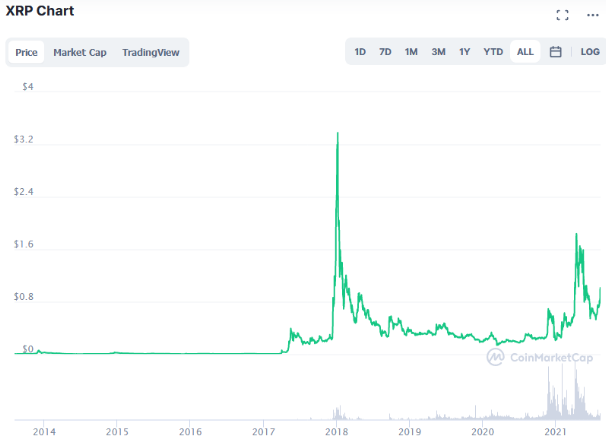EBay Faces Legal Repercussions: Section 230 Doesn't Shield Banned Chemical Listings

Table of Contents
The Case Against eBay: Understanding the Allegations
The lawsuit against eBay centers on the alleged sale of various banned chemicals through its platform. The plaintiff, [Insert Plaintiff Name or Description if available], claims that eBay knowingly allowed the listing and sale of these hazardous substances, resulting in [Insert specific damages claimed, e.g., environmental damage, personal injury]. The specifics of the case are still unfolding, but the allegations are serious.
- Types of Banned Chemicals: The lawsuit reportedly involves the sale of [Insert specific examples of banned chemicals if available, e.g., certain pesticides, precursor chemicals for explosives]. These chemicals are subject to strict regulations due to their potential harm to human health and the environment.
- Potential Harm: The sale of these banned chemicals poses significant risks. The plaintiff argues that the uncontrolled distribution of these substances could lead to [Insert specific potential harms, e.g., environmental contamination, accidental poisoning, illegal manufacturing of harmful products].
- Plaintiff's Argument: The plaintiff contends that eBay failed to adequately monitor its platform, actively facilitating the sale of illegal goods and thereby contributing to the harm caused. They argue that eBay's negligence and lack of due diligence make the company liable for damages.
Section 230 and Its Limitations in This Context
Section 230 of the Communications Decency Act generally protects online platforms from liability for content posted by their users. This provision is often cited as a cornerstone of the internet's free speech principles. However, Section 230 is not absolute, and its protection is contingent on acting in "good faith."
- Good Faith and Section 230: The concept of "good faith" within Section 230 requires online platforms to take reasonable measures to address illegal activity on their sites. eBay's actions (or inactions) in allowing the sale of banned chemicals are now being scrutinized in this context. The question is: did eBay act in good faith to prevent the listing of these substances?
- Legal Precedents: Several court cases have already challenged the scope of Section 230 protection. Cases involving [mention relevant case law, e.g., platforms knowingly facilitating sex trafficking] have shown that Section 230 does not shield platforms from liability when they actively participate in or facilitate illegal activities.
- Hosting vs. Facilitating: The crucial distinction lies between passively hosting user-generated content and actively facilitating illegal activity. The lawsuit against eBay hinges on the argument that the company went beyond passive hosting and actively facilitated the sale of banned chemicals through its platform's design and operations.
eBay's Response and Potential Outcomes
eBay has yet to issue a comprehensive public statement directly addressing the specifics of the lawsuit. However, it's anticipated that their legal strategy will focus on [Insert potential legal strategies, e.g., arguing that they did act in good faith, claiming insufficient evidence of direct involvement].
- Legal Strategy: eBay's defense will likely center on demonstrating that they have adequate measures in place to detect and remove illegal listings. The success of this strategy will depend on the strength of their internal processes and their ability to prove proactive efforts to combat the sale of banned chemicals.
- Financial Penalties: The potential financial penalties for eBay are substantial, potentially encompassing fines, legal fees, and damages awarded to the plaintiff. The magnitude of these penalties will depend heavily on the court's assessment of eBay's culpability.
- Reputational Damage: Regardless of the outcome, this lawsuit will likely damage eBay's reputation and user trust. Consumers may be less inclined to use a platform perceived as negligent in preventing the sale of dangerous goods.
Implications for Online Marketplaces and E-commerce
This lawsuit has significant implications for the broader e-commerce landscape. It underscores the growing responsibility of online marketplaces to actively monitor and regulate the goods sold on their platforms.
- Improved Monitoring Systems: The case highlights the need for more sophisticated monitoring and filtering systems to detect and remove illegal or hazardous products. Artificial intelligence and machine learning could play a crucial role in these improvements.
- Increased Verification Responsibility: Online marketplaces may need to implement stricter verification processes for sellers and products to ensure that all listed items comply with relevant laws and regulations.
- E-commerce Regulation Changes: The outcome of this case could influence future e-commerce regulations, potentially leading to stricter liability standards for online platforms and increased governmental oversight.
Conclusion
The lawsuit against eBay concerning the sale of banned chemicals is a landmark case that exposes the limitations of Section 230 protection when it comes to knowingly facilitating illegal activity. The outcome will significantly impact the future of online marketplaces and the responsibilities they bear in preventing the sale of dangerous or illegal goods. The need for enhanced monitoring, stricter seller verification, and potentially stricter regulations is evident. The ongoing legal battle surrounding eBay and the sale of banned chemicals highlights the evolving landscape of online marketplace liability. Stay updated on the outcome of this crucial case, as it could significantly impact the future of online sales of regulated goods. Keep following our site for the latest updates on eBay and Section 230.

Featured Posts
-
 Could Buying Xrp Ripple Today Set You Up For Life A Realistic Look
May 07, 2025
Could Buying Xrp Ripple Today Set You Up For Life A Realistic Look
May 07, 2025 -
 Who Wants To Be A Millionaire Players Shocking Lifeline Use Can You Answer This Simple Question
May 07, 2025
Who Wants To Be A Millionaire Players Shocking Lifeline Use Can You Answer This Simple Question
May 07, 2025 -
 Mhrjan Lwkarnw Alsynmayy Ymnh Jaky Shan Jayzt Alinjaz Almtmyz
May 07, 2025
Mhrjan Lwkarnw Alsynmayy Ymnh Jaky Shan Jayzt Alinjaz Almtmyz
May 07, 2025 -
 The Goalie Who Faced Ovechkins First Nhl Goal Wants A Souvenir
May 07, 2025
The Goalie Who Faced Ovechkins First Nhl Goal Wants A Souvenir
May 07, 2025 -
 Cavaliers Defeat Bulls Claim Eastern Conference Lead
May 07, 2025
Cavaliers Defeat Bulls Claim Eastern Conference Lead
May 07, 2025
